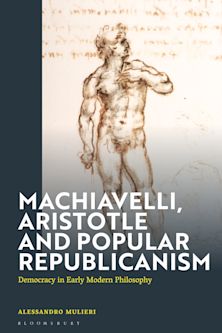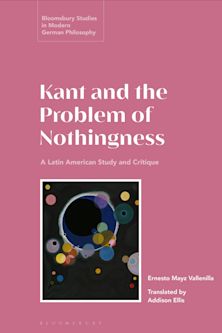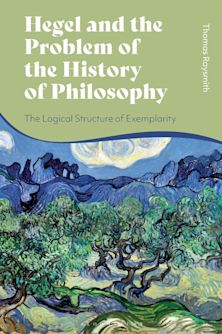- Home
- ACADEMIC
- Philosophy
- Modern Philosophy
- Thomas Hobbes and the Politics of Natural Philosophy
Thomas Hobbes and the Politics of Natural Philosophy
This product is usually dispatched within 1 week
- Delivery and returns info
-
Free CA delivery on orders $40 or over
You must sign in to add this item to your wishlist. Please sign in or create an account
Description
In 1625, Charles I inherited not only his father's crown, but also his desire to run the country without interference from Parliament. But many members of Parliament opposed the King on issues of taxation, religion and the royal prerogative. It was in this historical context that Hobbes presented a political philosophy that, at least in his opinion, achieved the status of a science, in a nation that was 'boiling hot with questions concerning the rights of dominion and the obedience due from subjects'. In this important new book, Stephen J. Finn argues that, contrary to the traditional interpretation, Hobbes's political views influence his theoretical and natural philosophy and not the other way about. Such an interpretation, it is argued, provides a better appreciation of Hobbes's writings, both philosophical and political.
Table of Contents
Chapter 2: The Traditional Interpretation of Influence
Chapter 3: Hobbes's Political Agenda
Chapter 4: The Politics of the Philosophy of Mind
Chapter 5: Hobbes's Philosophy of Language
Chapter 6: The Political Influence
Bibliography
Index
Product details
| Published | Aug 04 2004 |
|---|---|
| Format | Hardback |
| Edition | 1st |
| Extent | 208 |
| ISBN | 9780826486424 |
| Imprint | Continuum |
| Dimensions | 234 x 156 mm |
| Series | Continuum Studies in British Philosophy |
| Publisher | Bloomsbury Publishing |
About the contributors
Reviews
-
"This book aims to interpret some aspects of Hobbes' natural philosophy from a political perspective. Instead of considering, as many commentators have done so far, the influence of natural philosophy on Hobbesian moral and political views, Finn approaches the question from the opposite direction and suggests that politics influenced Hobbes' conception of science...There is obviously a lack of consistency in some parts of Hobbesian natural philosophy, and political reasons can perhaps explain some of it, but one may doubt that there is enough evidence to speak, as Finn does, of a 'politics' of truth, nominalism and reason." -Luc Foisneau, Philosophy in Review, 2007
Negative
-
Reference & Research Book News, August 2006
mention
-
mention- The Chronicle of Higher Education/ October 27, 2006
-
'This work is one of the most in-depth studies of Hobbes's thought available in the English speaking world today.' James J. McCartney, Villanova University, PA
Blurb from reviewer
-
"This book serves as a good reminder of the fact that Hobbes's natural philosophy does not exist in a vacuum." -Susanne Sreedhar, Tulane University, Notre Dame Philosophical Reviews, 2007
Susanne Sreedhar, Tulane University, Notre Dame Philosophical Reviews


































